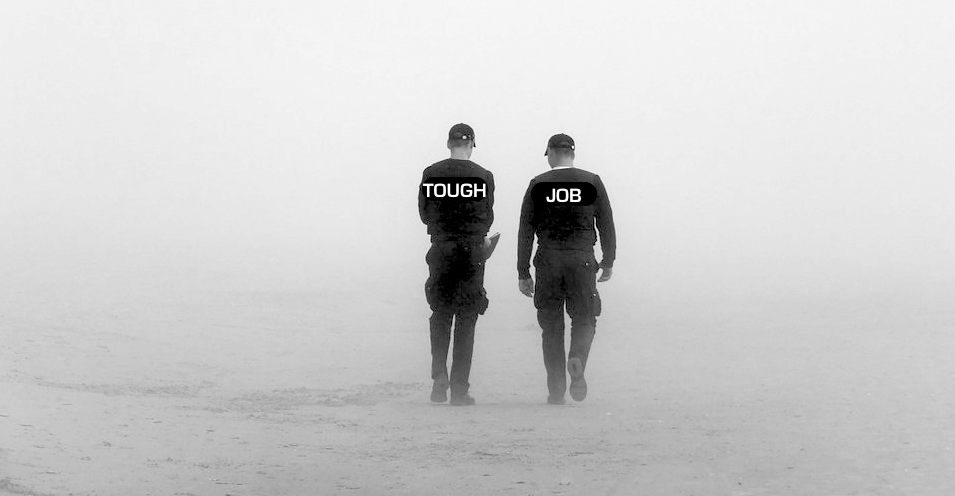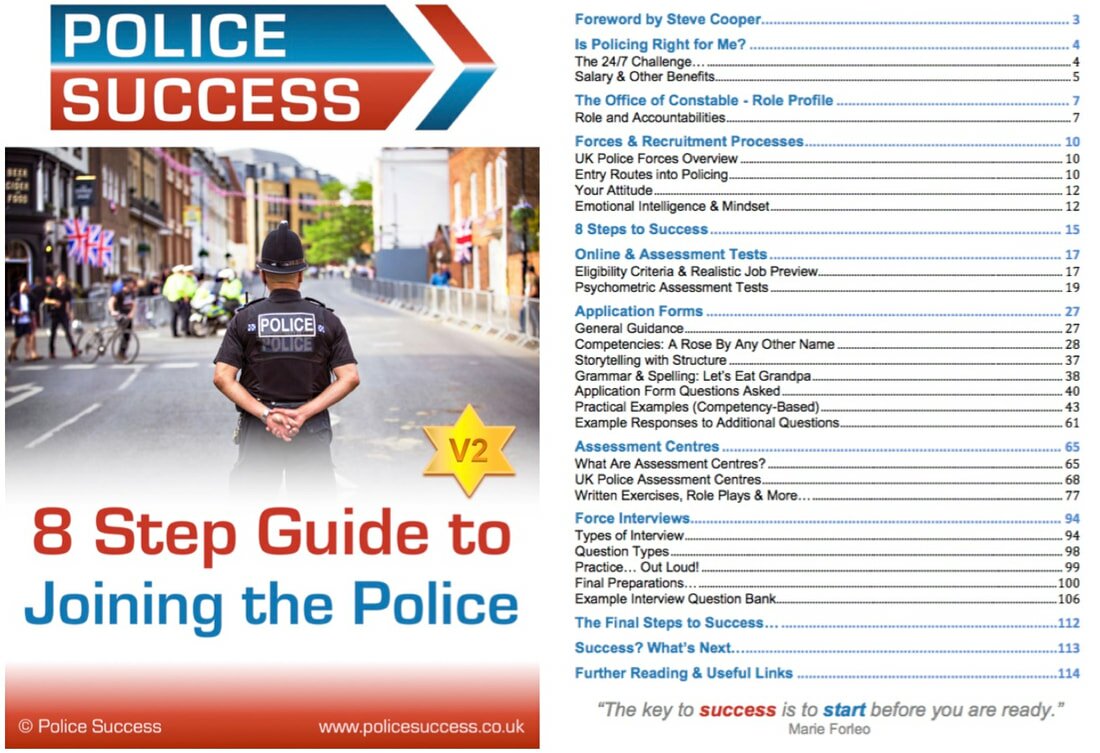Police Officer Support: Part 1 (Police Federation)
"Anything is possible when you have the right people there to support you."
- Misty Copeland
This blog series provides headline guidance on the support associations and services in the UK police service once you have joined. Many of these provide information and guidance for those wanting to join the police as an officer. Support organisations and networks range from the official Police Federation in England, Wales, Scotland and Northern Ireland (effectively the 'trade union' of serving officers), support groups based around 'protected characteristics' (a subject useful to know for your application / interview!), to other activity-based, informal and in-house support groups. All aim to provide support, activities, and/or represent the views of officers in some way.
You can find out more in your police force once successful at your interview, application or other recruitment assessments which the Police Success guide supports you with. But let's start in this first with the most prominent... UK Police Federations
"The voice of Scotland's police service."
- Scottish Police Federation purpose statement
The Police Federation is an organised staff association representing ‘rank and file’ (Police Constable to Chief Inspector) police officers. It is legally different from a fully-fledged trade union, but acts practically the same:
Unlike trade unions however, officers cannot openly campaign for a political party or go on strike.
Each UK police region has its own Police Federation:
The PFEW was founded in 1919 and is the largest of the three organisations, stating it represents 120,000 officers; though figures on how any of those are paying members are not readily available. It has a headquarters in Leatherhead, from which it provides conferences, accommodation, restaurant and other facilities for members. Note that forces in England & Wales also each have their own local force federation, called a ‘Branch’, each with their own website, support services and full- and part-time force-funded Federation Representatives (aka ‘Fed Reps’). The Federation also employs regional organisers who work across several forces. The SPF was also founded in 1919 and boasts representation of over 18,000 people, including Police Cadets and Special Constables. The SPF is organised into more local 'Area Committees'. A key part of the work of Federations is negotiating terms with the Police Negotiating Board and make the terms of employment accessible to Police Officers. Here is Police Scotland's 'Police Officer Handbook', which includes regulations on duty time, pay, allowances, leave and expenses. The PFNI was established much later in 1971 and has approximately 7,000 members. It is organised with reps in local areas called 'Districts'. One notable initiative is the Mental Health Wellbeing Programme, targeting improved wellbeing of officers through holistic and other complimentary therapies not usually offered through the NHS. There are Federation representatives for each rank of the service. For example, the PFEW has structures to represent the differing interests of Constables, Sergeant, and Inspectors / Chief Inspectors. Police forces generally have approximately 1 Fed rep for every 100 - 200 serving police officers. Upon joining the police, you will be strongly encouraged by local Fed reps to join the Police Federation and pay the subs, which are taken directly from your monthly wages (like police pension contributions are). These subs act like a one-stop-shop insurance for benefits of legal cover (e.g. representation in the event of any disciplinary matters), travel insurance, health cover, while also providing access to services (e.g. training, conferences) and discounts. A notable and successful centre available to PFEW members is ‘Flint House’. Flint House is a recovery and rehabilitation centre for physical and mental health ailments. Located near Reading, it also provides services for retired officers, PCSO, Special Constables and other frontline policing roles. Fed reps are well-versed in providing advice and signposting for their fellow officers to other welfare and support mechanisms. We will cover many of these in the next blogs in this series. 
"Representation, Support, Influence, Negotiation."
- Police Federation England & Wales stated objectives
In the next blog, we shall explore more of the myriad of support organisations for police officers. Until then, Happy New Year and good luck for 2021 in your ambition to join the police family!
I hope you found this blog helpful, whether you are an aspiring to join the police as a member of the public, leaving the military, a serving Special Constable or PCSO. Download the comprehensive Police Success guide (below) for more detailed guidance, or feel free to arrange some 1-2-1 coaching for bespoke support. The guide includes comprehensive information about the role, CVF, assessment tests, application interviews, practice questions, and much more to help you excel and achieve your ambition to joining the police!
0 Comments
Leave a Reply. |
 RSS Feed RSS Feed
AuthorA former Royal Marine, Detective Inspector, and is a qualified coach/mentor. With extensive police experience, Steve also established Rank Success to help officers achieve police promotion. CategoriesAll ArchivesFebruary 2021 |






